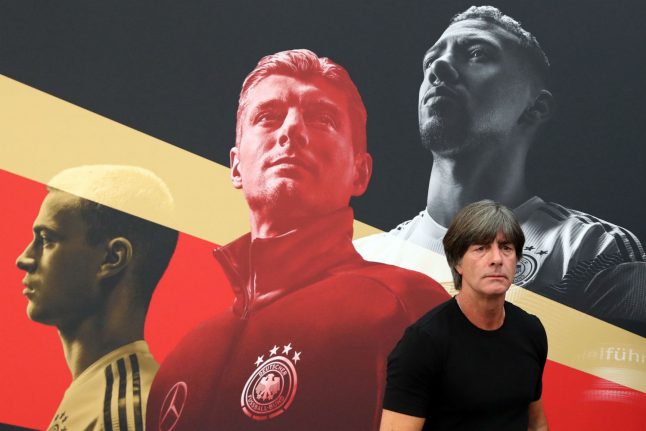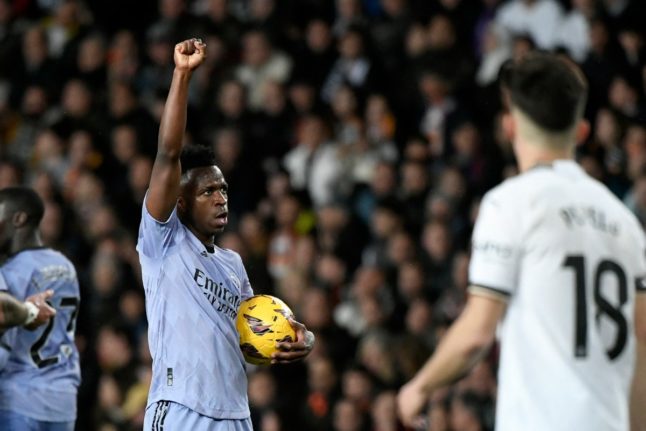Holding onto the trophy
Germany are the reigning world champions, having beaten Argentina in the 2014 final after humiliating hosts Brazil 7-1 in the previous round. Many of Germany’s stars from that tournament are still around, including key midfielder Toni Kroos and goalkeeper Manuel Neuer. Germany has also had the same coach since 2006, the cool-headed Joachim (Jogi) Löw.
However, that feat won’t be easy to repeat as champions. No country has done so since Brazil followed up victory in 1958 by lifting the trophy in 1962, and talented rivals like France, Spain, and Lionel Messi’s Argentina will be desperate to come out on top.
Will Germany have enough to go all the way again? The team's indifferent form in pre-tournament friendlies has dampened expectations. In recent days Germany has lost 2-1 to neighbours Austria and struggled to a 2-1 victory over lowly Saudi Arabia. They are a heavy favourite to make it out of a group including South Korea, Mexico, and Sweden, but the knockout stages will provide a stiffer test.
Changing of the guard
Not all of the champions from 2014 will be travelling to Russia. Philipp Lahm, the captain in 2014, has since retired. So has the deadly poacher Miroslav Klose, the national team’s all-time top scorer. He is now an assistant coach with the squad. Meanwhile, the experienced midfielder Bastian Schweinsteiger, a key cog in that team, now plays in the USA and is no longer available for international selection.
It will be up to a younger generation to replace the departed stars. With young talents like Joshua Kimmich, Leon Goretzka, and Timo Werner in the ranks, Germany should have enough fresh blood to rejuvenate the squad.
Of all the new players, Werner is the one to keep an eye on. The lighting-fast striker scored 23 goals for RB Leipzig last season, and will be hoping to continue that form in Germany’s famous white kit. “Turbo Timo” as the German media have dubbed him, might well be a household name by the end of the tournament.
Big names left out
 Manuel Neuer. Photo: DPA
Manuel Neuer. Photo: DPA
The German squad is so talented that some household names will be watching from their houses. Mario Götze, the scorer of the winning goal in the 2014 final, has battled injuries in recent years and did not make the cut. Nor did the electric winger Leroy Sané, despite winning the young player of the year award in the English Premier League.
Coach Jogi Löw explained Sané’s absence by saying that “in his games with the national team he hasn't quite done the business”. German fans would probably agree with that, but if things go wrong in Russia, Löw will face criticism for having left a potential star at home.
There are also still questions about Manuel Neuer’s health. The captain claims he has completely recovered from breaking his foot, but he missed the end of the club season and may not be in top form.
Political turbulence
Politics always plays a role in international competitions, and that seems to be especially true for this World Cup. Many Western leaders won’t travel to Russia to support their teams, as tensions with Vladimir Putin’s regime are still too high following the annexation of part of Ukraine. But Angela Merkel told an interviewer on Sunday that, in principle, she doesn’t have any objections to going. She says her attendance will depend on her other responsibilities.
Then there’s the question of German identity. Ilkay Gündogan and Mesut Ozil, German-born players of Turkish origin, caused a stir in May by posing for a photo with Turkish president, Recep Tayyip Erdogan. Gündogan gave Erdogan a signed kit, addressing him as “my president”. Politicians from the far-right Alternative for Germany (AfD) quickly pounced, asking why Gündogan played for Germany if he felt Turkish.
 Ilkay Gündogan. Photo: DPA
Ilkay Gündogan. Photo: DPA
Since the political uproar, both players have affirmed their loyalty to Germany, even meeting with German president Frank-Walter Steinmeier to clear the air. However, during the match against Saudi Arabia, Gundogan was booed and whistled every time he touched the ball – Löw called the incident “painful”.
Some commentators have asked if there’s more to the story than a picture with Turkey’s authoritarian ruler. A fraction of Germans have always had issues with players with foreign roots.
Alexander Gauland, the co-leader of the AfD, is a prime example. Jerome Boateng, arguably Germany’s best defender, was born and raised in Berlin, but has a Ghanaian father. Gauland once claimed that “people think he’s a good footballer. But they don’t want to have a Boateng as their neighbour.”
When and where to watch
Hopefully the tournament will be about goals and assists rather than politics and race. Cities all across Germany will set up viewing areas, the most famous being the Fanmeile (Fan mile) at the Brandenberg gate in Berlin. Expect flags, songs, tears of joy (or pain), and good German beer.
Here’s the schedule for Germany’s group stage matches.
- June 17th at 5pm: Germany vs Mexico
- June 23rd at 8pm: Germany vs Sweden
- June 27th at 4pm: Germany vs South Korea
If Germany makes the final, they will play for football's biggest trophy on July 15th at 5pm. But don’t worry, Germans will make sure you don’t forget about the match.
SEE ALSO: Bangladeshi World Cup megafan unfurls kilometres-long German flag



 Please whitelist us to continue reading.
Please whitelist us to continue reading.
Member comments